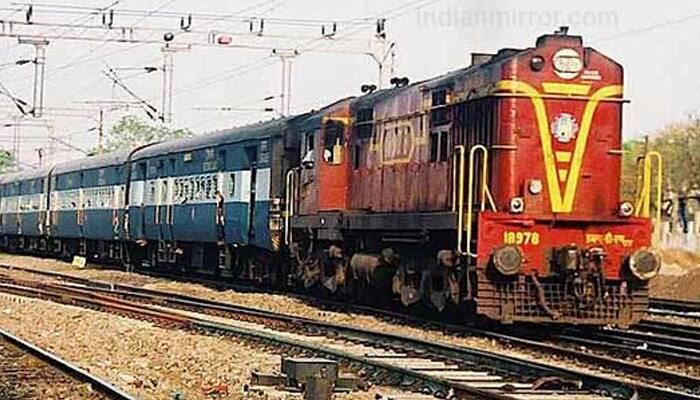New Delhi: In one of the worst disasters in the history of Indian Railways, at least 120 persons were killed and over 100 injured before dawn on Sunday when 14 coaches of the Indore-Patna Express derailed near Kanpur in Uttar Pradesh.
The tragedy occurred when the coaches of the Patna-bound train ran off the rails shortly after 3 am near Pukhrayan station, about 60 km from Kanpur city in Uttar Pradesh.
The Patna-Indore Express train mishap has brought the spotlight back as to what needs to be done to improve rail safety and make train journeys an enjoyable and comfortable experience for millions of its passengers.
Nearly four years back, a high-powered committee on railway safety had made some path-breaking recommendations aimed at reducing the casualties in rail accidents.
The high-powered committee was set up by Dinesh Trivedi, the then Railway Minister in 2012 to make recommendations for the improving the railways network. It was chaired by former Atomic Energy Commission chairman Anil Kakodkar.
The recommendations made by were to be implemented over a course of five years. Tragically, four years have passed since then and dust seems to have settled over the files containing committee's recommendations.
Sadly, on May 26, 2014, when Narendra Modi took oath of office as Prime Minister along with his council of ministers at the forecourt of the Rashtrapati Bhawan, a train mishap involving the Gorakhdham Express took place in which over two dozen passengers were killed.
Soon after the train mishap, Sadananda Gowda, who was then the railway minister, swung into action, and referred to the recommendations made by the committee to prepare an action plan in this regard.
But before Gowda could take any significant measures, he was replaced by former Shiv Sena MP and Mumbai-based chartered accountant Suresh Prabhu, who had joined the BJP just hours before being appointed a minister.
Prabhu, a four-time Lok Sabha MP had served as Power and Environment Minister in the Vajpayee government but had since been in political wilderness after having strained ties with the RSS leadership.
So when Prabhu was given the Rail Ministry, he set out on an agenda to set to transform the Indian Railways which in the recent years had become a potent tool in the hands of politicians to strengthen their party's voter base in weaker areas.
Prabhu, is a short span, proved that he was different, unlike his predecessors since he talked about mopping resources through innovative measures.
Through his team of chosen officers, Prabhu carried forward PM Modi's 'Clean India' campaign, both in letter and spirit, with an appeal to millions of passengers to keep trains clean.
Taking cue from the Prime Minister and his cabinet coleague Sushma Swaraj, Prabhu also took to various social media platforms including Twitter in rescuing passengers in distress in the best possible way.
The Railway Minister also undertook some other important steps aimed at pulling the Railways out of decades of lethargy. Prabhu called for increasing the speed of passenger trains, besides running freight trains with 25 tonnes axle load.
However, in order to do this, the Railways needs to strengthen and repair tracks and rail bridges, replace thousands of unmanned level crossings with over-bridges or underpasses and introducing state-of-the art warning and quick response mechanism.
In this context, the recommendations made by the Anil Kakodkar Committee in 2012 asumes significance. The panel had then concluded that the measures suggested by it would "not only eliminate the accidents at level crossings which account for 65 percent of total deaths due to train accidents, but will also improve the line capacity as trains get held up at busy level crossings gates, holds significance.
It will also save operation and maintenance costs incurred on the gates, the panel had said in its report.
Kakodkar Committee had also suggested a switch over from the ICF design coaches to the much safer LHB design coaches which are much lighter and inflict less damage in the case of an accident.
Suresh Prabhu has often stated that he is working on his "mission zero accident", but to achieve this his ministry requires a huge investment to improve the overall health of the Indian Railways.
The Railways urgently needs to upgrade the signalling system and strengthening of tracks. The Railway Minister had written to Finance Minister Arun Jaitley for the creation of separate funds for this purpose. Additionally, the Railways also needs at least 1 lakh new personnel to meet its requirements.
The estimates were forwarded after an assessment by an internal committee of the Railway Board comprising officials from signals, mechanical, civil and finance directorate.
In view of the Patna-Indore train tragedy, former railway minister Dinesh Trivedi has made a terse observation. While he praised Prabhu for taking several passenger-friendly stps, he also stressed that ''the time has come for the government to focus more on operations rather than cosmetics.''
















